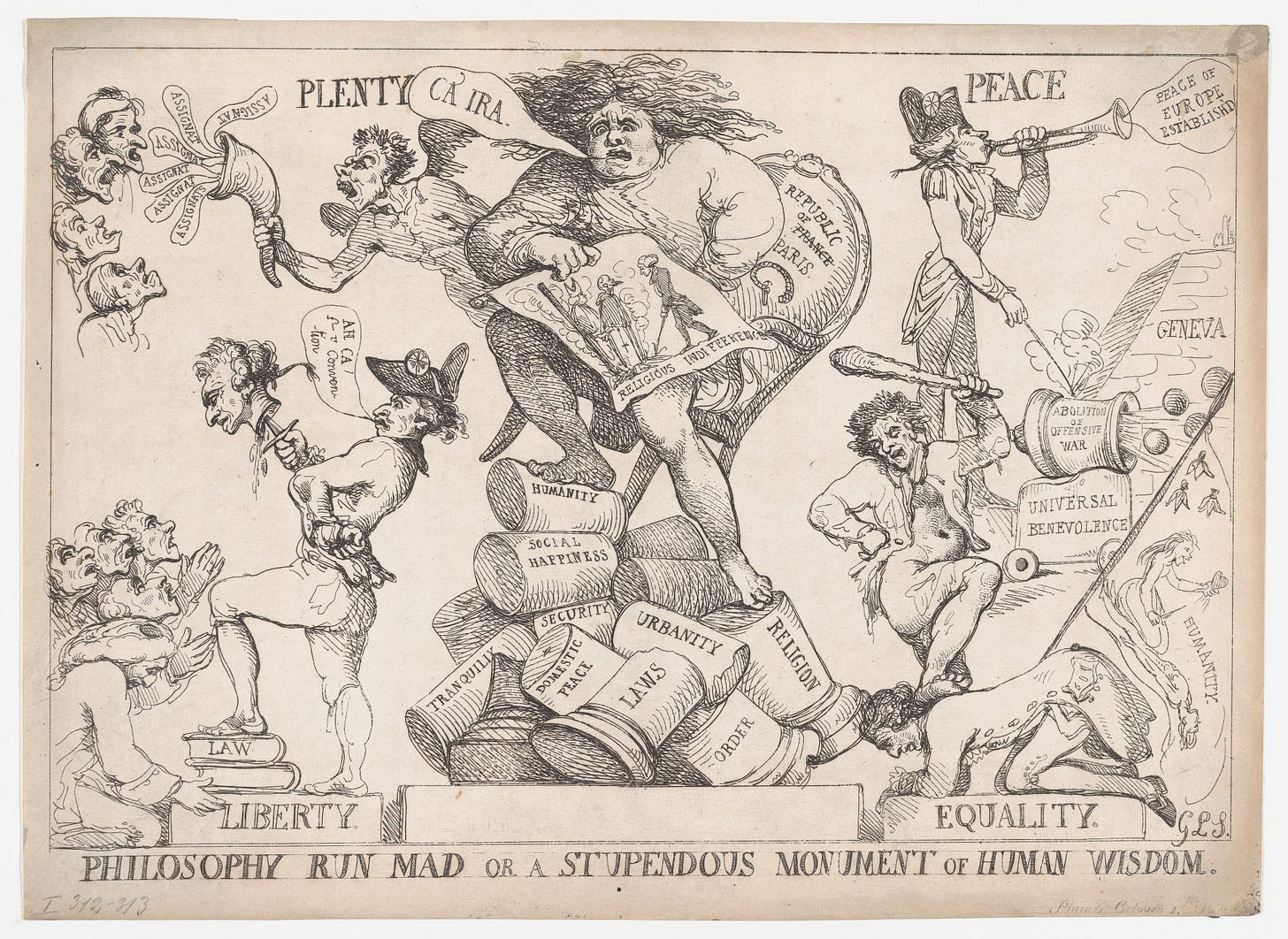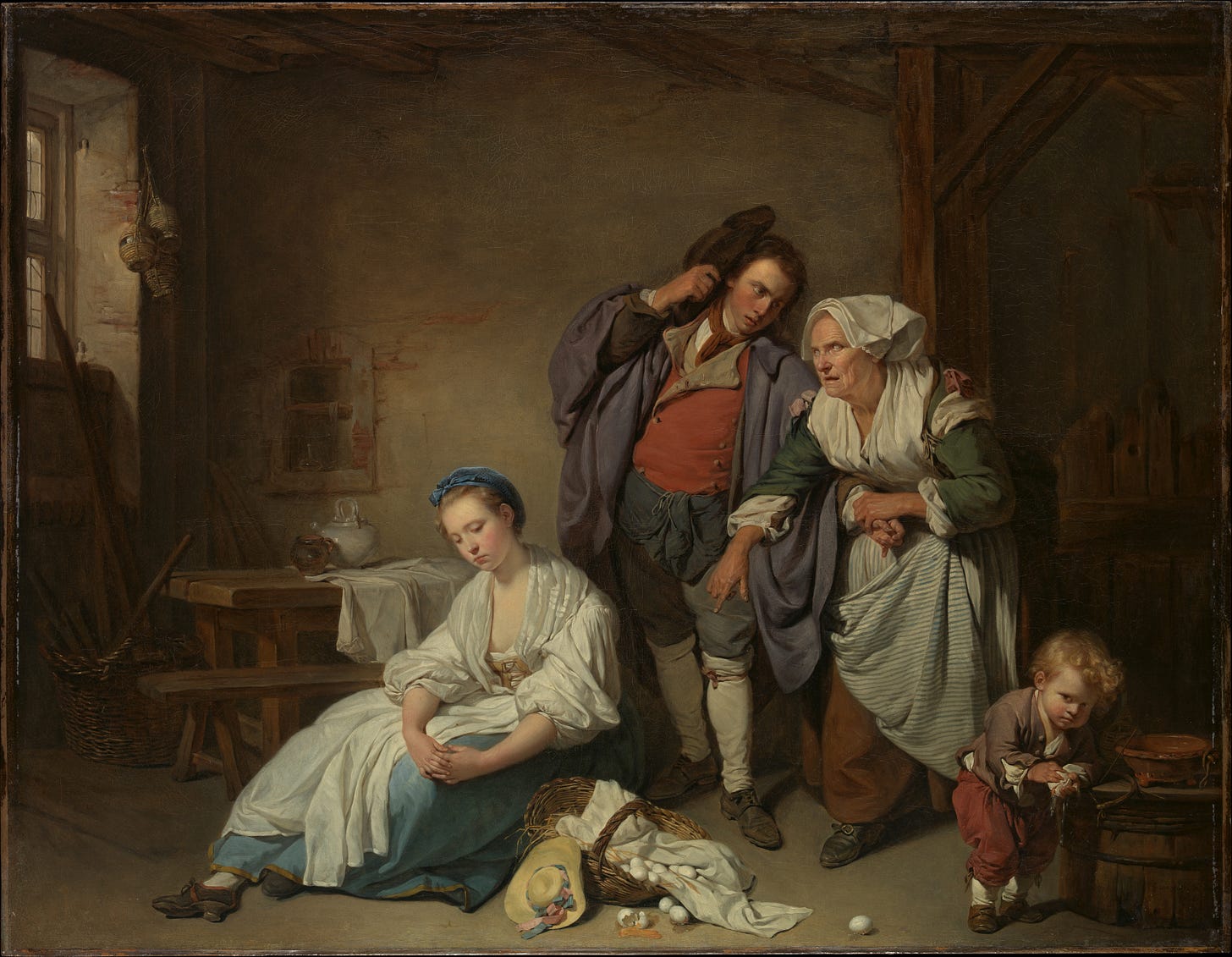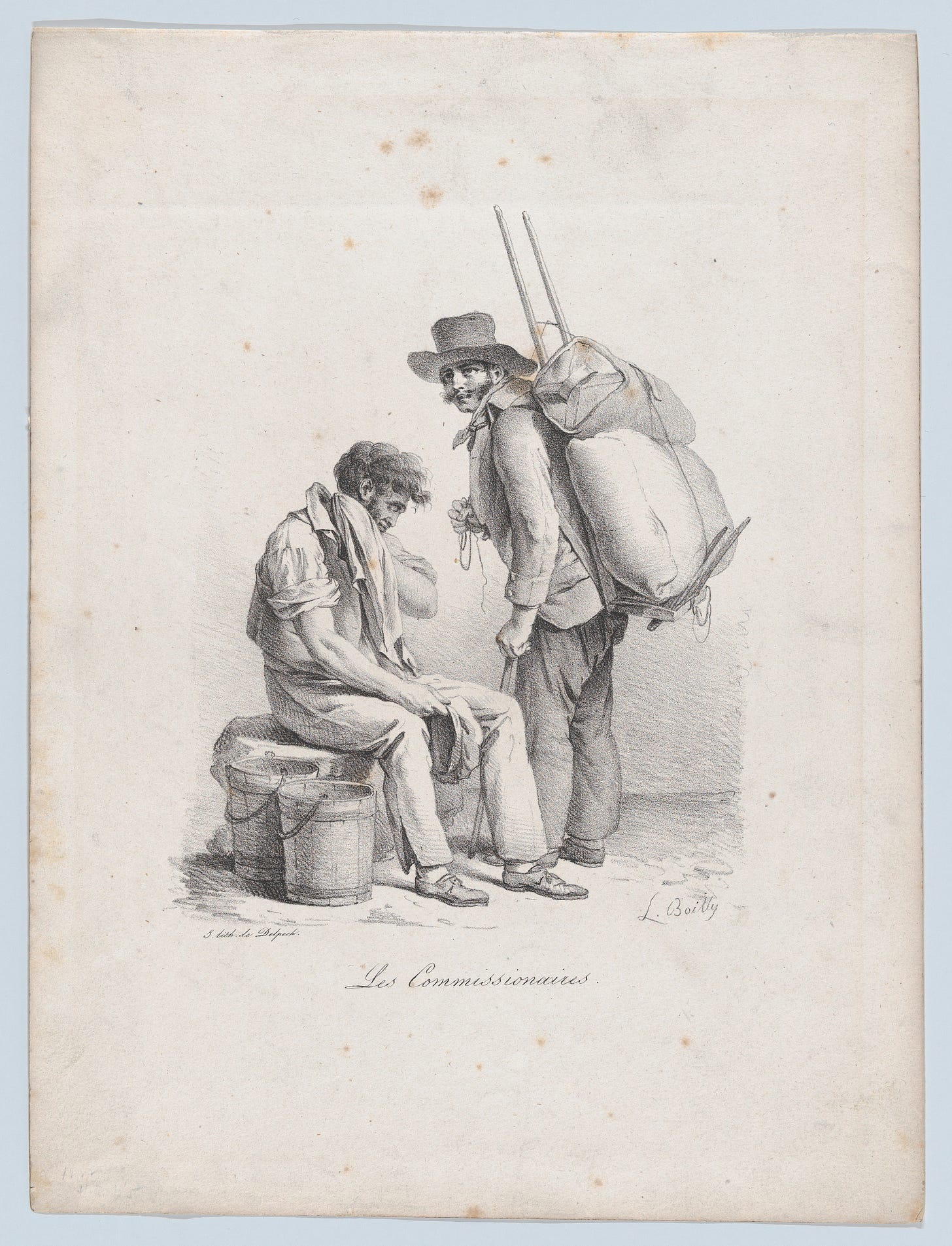Taking your education into your own hands
In April of 2019, I passed my dissertation defense. It was an important day, but I can’t remember many details. I recall a few jokes that I made at the beginning of my presentation; I remember quite vividly the one devastating question a member of my committee asked (and then dropped, telling me it would make for good future research); I know afterward I discovered visible sweat in the armpits of my jacket. But I do know that I was happy. I loved philosophy, and this was the culminating event of the previous 6 years.
In May of 2019, I married Mengyu. A few weeks later, she was on a trip to China to renew her passport and I was driving our things down to Austin. For the next few years, we’d live apart, with her coming to visit whenever she could, as she finished her dissertation and I started my job in tech.
I was working at an artificial intelligence company, a firm called Cycorp.1 Despite being surrounded by brilliant people, I felt…dull. I can look back at my reading journal to see what I was reading at the time. It wasn’t much philosophy. In fact, the summer of 2019 began a period where I stopped reading philosophy for a few years. Very quickly, I lost my love for it.
It was a response to rejection, or something close to it. I had chosen to leave academia to go into tech. My advisor had been surprised, even a little disappointed. I made that choice because I knew my odds of getting a tenure-track job were slim, and I was pretty sure that I would never get a job at a school where I wanted to be. Maybe I’d avoid being a permanent adjunct, but I certainly wasn’t going to get a job that allowed me to do research in a serious way. So, I left. But I have to admit that I still felt like I had been the one rejected.
I had rejected academia; I began to think that academia had rejected me; from there, I concluded that philosophy had rejected me.
Six years later, I’m a professional philosopher again. I make a living – an inconsistent one, yes, but a good one, too – writing and making videos. I’m writing a book for a good publisher on a philosophical subject. I’m reading great thinkers and trying to think with them. As I was reading Hannah Arendt’s The Life of the Mind this week, I felt that thrill again, like things were starting to come together.
In that book, Arendt writes of two distinct sources of intellectual activity: wonder and tragedy. She calls these the Greek and Roman responses, respectively.
In the Theaetetus, Socrates tells us that wonder is the feeling of a philosopher, and philosophy begins in wonder. Our admiring-wonder at the world – a sort of awe-struck gratitude – is the Greek answer to the question ‘Why do we think?’ Many centuries later, Bertrand Russell gave a similar answer when writing on the value of philosophy. ‘Philosophic contemplation does not, in its widest survey, divide the universe into two hostile camps—friends and foes, helpful and hostile, good and bad—it views the whole impartially,’ Russell says. The whole is a thing to be grasped, eventually. ‘Philosophy has a value—perhaps its chief value—through the greatness of the objects which it contemplates.’
The Roman response is a bit different. Where the Greeks begin in wonder, the Romans begin with tragedy. The Roman Stoics seem to begin with an understanding of hardship and suffering in the world. It is philosophy that offers an escape from this condition. And Boethius’ Consolation of Philosophy is an extended treatment of precisely this issue. Boethius suffers, as so many do, precisely because he has neglected Lady Philosophy. As she shows him that the goods of the world are inferior to the goods offered in philosophical contemplation, she brings him a deep peace.
When I think of the period shortly after earning my PhD, I see it as a time of profound incuriosity. If the Greeks are right about the origins of philosophy, then this was also a time of profound ingratitude. I had taken my dissatisfaction with the world of institutions and transferred this to the world at large. I had lost sight of the joys of contemplation, something I’d at least glimpsed while working on my dissertation.
I think this is a common problem. Dissatisfaction with institutionalized education, or the formal failings of academia, leads us to reject education itself. What a tragedy!
Recently, I discovered a project on Subsatck:
. It’s a group project on the great books, and in particular on reading through St. John’s great books curriculum. Three people – Rach, Boze, and Dana – are making their way through the St. John’s curriculum, though along the way their also doing quite a few other things.I asked them what led to this project. Rach told me a bit about her educational history. She’d had a rough transition around ninth grade, and a teacher dismissed her love of Shakespeare. It would have been easy for her to simply lose her love of literature then, but she kept going—though it took it down some strange paths. She had a year of self-directed learning during which she and her brother read classic works of English literature along with The Iliad and The Odyssey. They wrote essays, reviewed films, and attended Shakespeare productions. They did quite a lot. “What I want to emphasize was that this year was a time to discover what our real passions were, and then to express them in writing,” she told me.
That same energy is carried over in this new project. Reading the St. John’s curriculum outside of St. John’s is an undertaking, but this sort of thing is always an undertaking. Taking your education into your own hands is always going to demand something of you.
When I spoke to Rach, Boze, and Dana about their project, what I was most impressed by was their sense of responsibility. They had a responsibility to themselves to continue their education. Dana spoke of ‘winging it’ in her student days, and she (like me) recommends Sertillanges’ The Intellectual Life for anyone who doesn’t want to merely wing it anymore. Rach was simply continuing a lifelong pattern of finding ways to educate herself. Boze spoke of the ‘sense of urgency of the bookish life’—a phrase a few people here should resonate with.
When I left academia and gave up on philosophy, I made a critical mistake. I confused the institution with the thing itself. I equivocated between the profession and the pursuit. Perhaps I wasn’t going to find a life in the profession, but philosophy itself was still mine.
I’m working on a script for a video – one of the in-depth explainers of philosophers that I make too rarely2 – and only yesterday realized how I needed to think about this. This project isn’t an opportunity for me to merely share my knowledge with the world. Instead, it is an opportunity for me to learn in public—I continue my own education and share the results. It’s a way not only of teaching but of modeling the way I want us all to approach education. Your education continues well after your school days, so long as you’re willing to take it into your own hands.
A recent subscriber sent me a message. Here’s a bit of what he wrote:
You have inspired me to take the plunge and study philosophy from direct sources! I've always read and watched videos about philosophy, but was too intimidated to study it directly.
That fear of studying philosophers directly is too common, but this man has started to overcome it. He’s taking his education into his own hands.
Cycorp is notable for a few reasons. First, it is the longest-running AI project in the world. Second, it hires obscene numbers of philosophy PhDs, giving us the title of ‘ontological engineer.’ Third, it has produced very few results.
On Nietzsche





Nice piece Jared. It resonated with me. I had a wonderful experience of high school under old school Jesuits. But only time and aging gave me an appreciation for what they did for me. A core curriculum that sparked a thirst for ideas and thinking and peeled off a fear of new ideas challenging my core. The tension of paradox in my life is where I’m currently at observing that the deity of the binary in modern discourse and the glib sacrificing of the “other’s” humanity to serve self interest all around us today. I find comfort in the large thinkers and am glad I found you to inform that along my path
Current disaffected MA holder (I couldn’t even do a PhD! Full time enrollment required, here’s your stipend so you could maybe split a flophouse with 4 people and eat EasyMac, oh you’re mid-30’s? bummer man.)
It also took me a few years but I’m now diligently every morning before work reading works of history in depth that I was only able to skim in grad school. My field is also clogged with xenophobes who hate the culture and people we are supposed to be experts in, so it was always awkward anyway. Being removed from that discourse and just reading and analyzing on my own has been so great.
The advent of these read-alongs has drastically improved my well-being also, finally tackling works that my “education” did not include. I find it crazy to live in allegedly the most bestest democratic republic ever 2 exist and to have not once been instructed to read The Republic. Some teachers & professors talked askance at it but that’s kinda where it ended. I didn’t even know until 2 weeks ago that it was not a treatise by Plato but rather another account of Socrates engaging in discussion 😂
Finally, I do need to give Arendt another go!